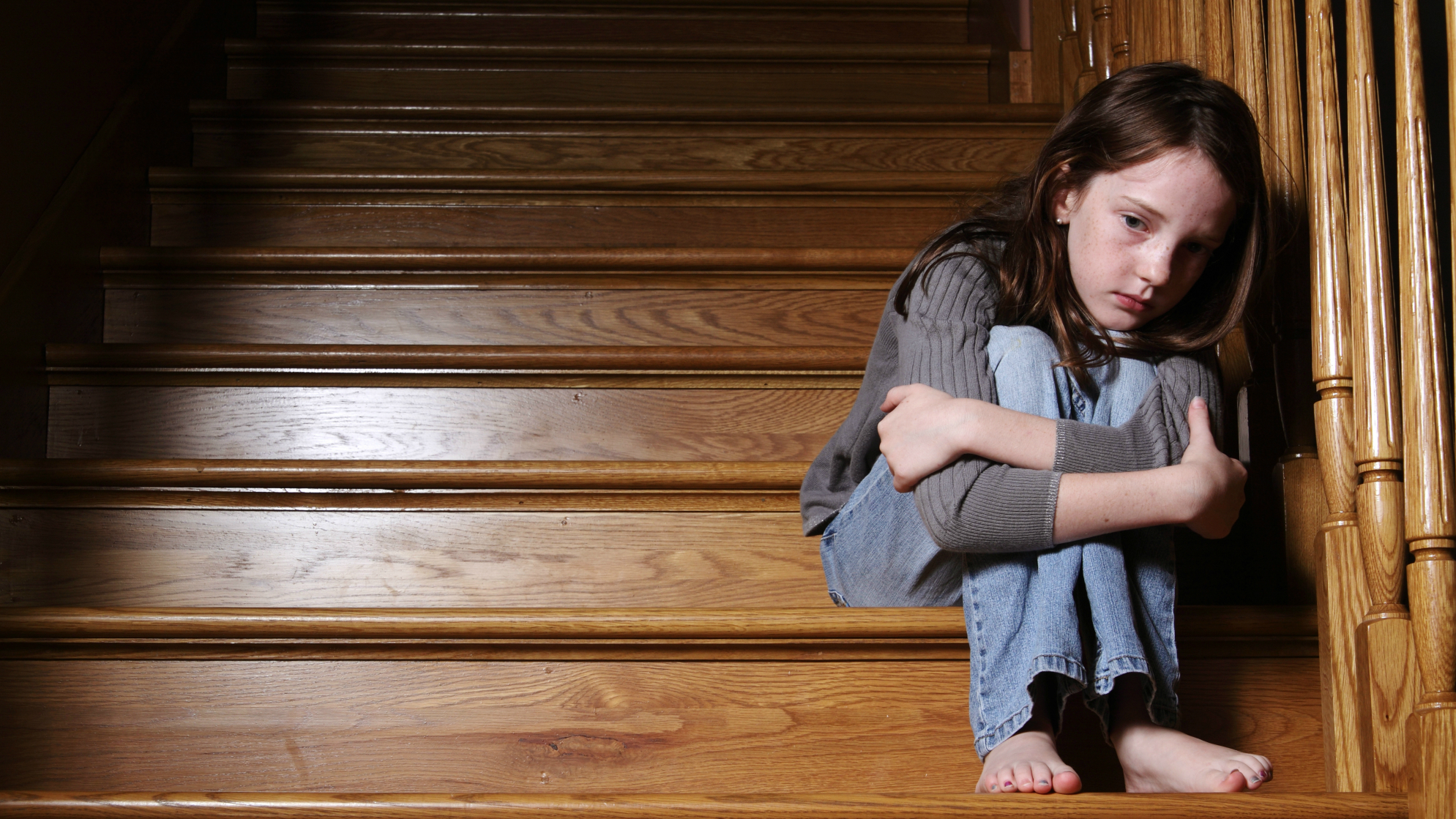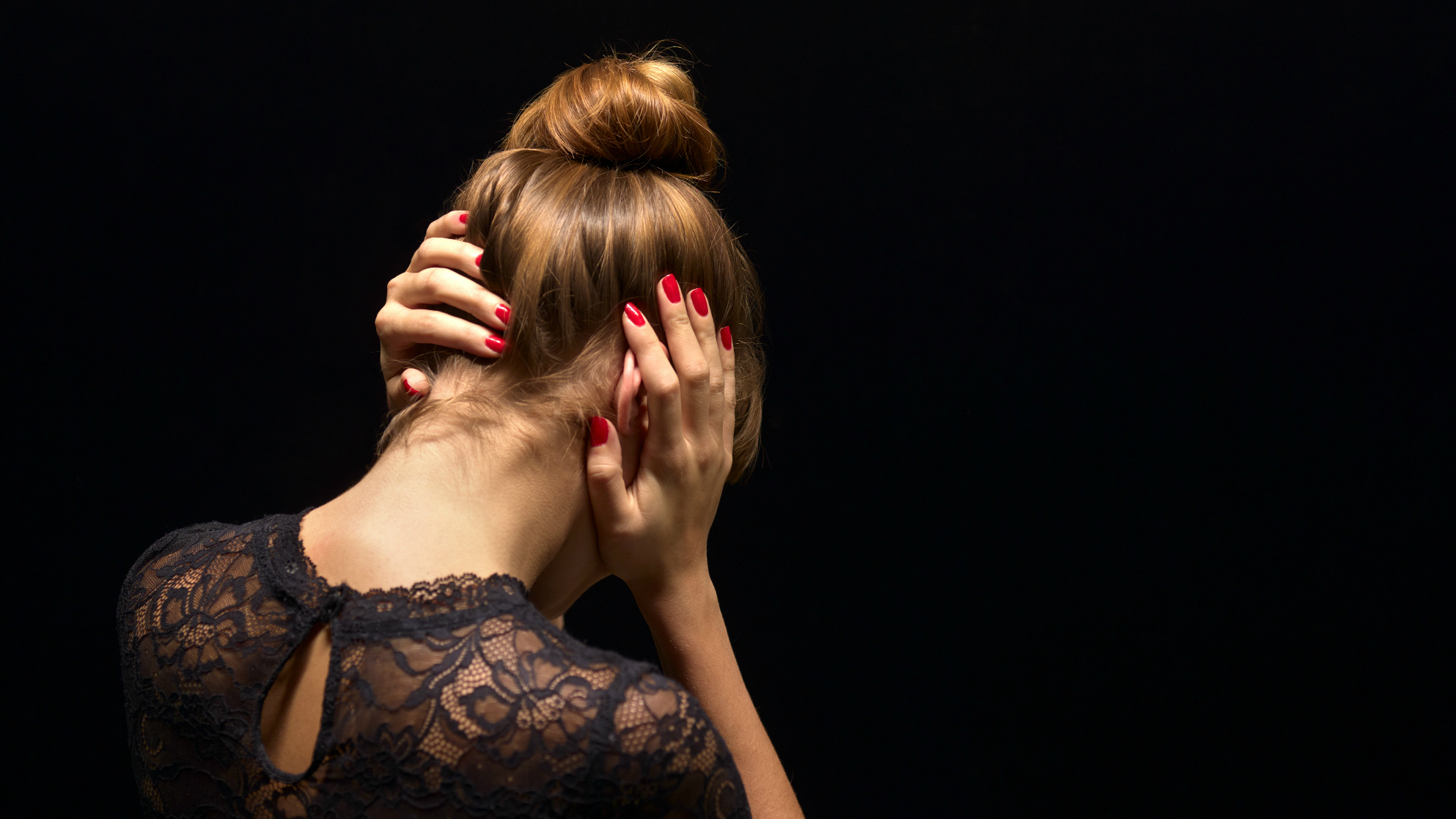Navigating the ups and downs of my beautiful mum's bipolar disorder
As a child, Olivia Palamountain learned to cope with the crippling lows and crazy highs of her mother’s mental illness. Her legacy? Joy, love and longing...

As a child, Olivia Palamountain learned to cope with the crippling lows and crazy highs of her mother’s mental illness. Her legacy? Joy, love and longing...
'Do you ever worry that your mummy won’t pick you up?’ I asked a classmate, with that familiar knot of panic rising in my belly. Eyeing me with suspicion, she gave me a nonchalant ‘nope’.
My heart heaved as it was confirmed again; only me. At eight years old, I had reason to worry. Whether Mummy would be a no-show was a permanent panic for me. As the end of the day arrived, I waited and watched as, one by one, my pals were greeted by their parents, chauffeurs and nannies; Mercedes slinking off into the London traffic.
I knew the drill. Chaperoned around the various school locations by a teacher with pity in their eyes, I was care of the school until one of my mother’s many ‘colourful friends’ could be contacted to take me home.
But it was a very different sort of home, and my mummy was a different breed of mother. After-school play dates at my friends’ houses meant fish fingers and Birds Eye waffles, served at the table with jugs of squash. Their mummies made cakes and went shopping, they asked us questions about school and wore pearls. My mummy was often in bed – or that was where I hoped to find her; her hair was cut short; she wore wild floral dungarees, and ballet pumps she’d painted herself. She never baked.
As I climbed the many stairs to the bedroom I shared with Mum – I never used my own – I couldn’t help but feel relieved. If she was already in bed then she might be normal again soon. Snuggling in beside her as she slept, I could smell that sour smell of alcohol on her breath and thought of the cans in the fridge. Whatever they were, I hated them. Waiting patiently for her to wake up, I squeezed my eyes shut, and wondered what on earth I would have to tell my dad.

My mother, Ulrika Brunnhage, was born in Sweden and moved to London after meeting my father in a standby queue for a flight to Hong Kong at Gatwick airport, a chance encounter that led to a love affair and then marriage.
Marie Claire Newsletter
Celebrity news, beauty, fashion advice, and fascinating features, delivered straight to your inbox!
By all accounts a beautiful, beguiling spirit, Ulrika was born to make an impression. Fiercely passionate and highly creative, I’m told she could charm her way in – or out – of any situation. By the time she had me, her only child, when she was 34, Ulrika had experienced a life of excess. She had lived with the infamous Marcos family in the Philippines, travelled the world by private jet, and could speak seven languages. When she arrived in upper-middle class London in the 80s, it was as if an alien had landed. Outrageously glamorous, with a purring Swedish accent and little concern for convention, Ulrika was an enigma to everyone. She also suffered from bipolar.
Manic depression (as it used to be termed) is a mental disorder that is characterized by extreme shifts in mood, as well as fluctuations in both energy and activity levels. These oscillations are often so debilitating that it can be impossible to maintain a regular lifestyle, wreaking havoc on all relationships and destroying lives in the process.
Consequently, I don’t remember my parents as a couple, but no one could forget their divorce. It was brutal and cruel, and they wrangled for two years over where I would be living.
By this stage my father had seen it all, with one particular manic eclipse even recorded on video tape. It makes for horrific viewing. Our maisonette in West London is in complete chaos. The furniture has been decimated, contents of drawers litter the floor, and the glint of smashed glass glitters everywhere. Not even the goldfish has escaped the carnage. Ulrika was found in hysterics, covered in blood and bruises. I was upstairs and just three years old. After this, Mum was sectioned.

Having since read the court transcripts, I know exactly how dirty this war was. ‘I would have tried anything to win,’ said my father; ‘I just didn’t think you would be safe with her.’ And he was probably right. But once recovered, Ulrika threw herself headlong into a fight to get me back and, against all the odds, she won.
Living with a bipolar parent has, as you might imagine, its ups and downs. But even on an average day, Ulrika had plans. From the grand – remodelling the flat single-handedly (the walls were the first to go, then the staircase) – to the absurd (being convinced she would make her fortune from selling electronic visors).
As her perpetual sidekick, I grew accustomed to a very flexible way of life. In her world there were no rules and no expectations, and thanks to Mum’s unique attitude to life, in amongst the madness we had a ball. We might eat Häagen-Dazs in bed all day, or dress up in sequins and parade down the pavement. From time to time the princess of Saudi Arabia would arrive in a limousine, whisking us off to a suite at The Dorchester.
Children crave a sense of belonging, and it became clear to me that Mummy and I didn’t fit in. It seemed that everything she said and did was at odds with the norm, and I would be squirming with embarrassment as she drove around in a battered old VW Golf playing music at top volume, pointing out my friend’s ‘fabulous eyelashes’, or dancing into the road, blocking the path of the school bus, just so she could blow me kisses. In retrospect, this was just Mum being Mum, but her behaviour was so unpredictable – and the juxtaposition of her moods so intense – that I couldn’t help but confuse character with crazy.
On the way up to a manic explosion, Mum was filled with boundless quantities of creative and positive energy. But like a kettle set to boil, it was only a matter of time before the whistle blew. When this happens, mania can become psychosis, and sufferers losing all touch with reality. And as such, much of what I was exposed to was not just inappropriate, it was dangerous. A stream of strangers would appear at our home, new best friends forged on a high; on a low, there were public brawls and disappearing acts.
I don’t know when exactly she began to drink, but alcohol added a dangerous edge to our already precarious world. Whimsical forays into London often ended up with me supporting her solo through the streets as she staggered and slurred her way home in the dark. An impromptu midnight feast ended in disaster, with Mum taking a tumble over the detritus littering our flat, slicing her arm on rusty steel. I called an ambulance and we were taken to hospital to get her stitched up, another scar adding to the series of silver strikes on her wrists.
‘Don’t ever let them take you away from me,’ Ulrika used to say. I would have done anything to protect her and, managing the situation like a diplomat, I invented child-friendly activities to report back to my father. Still too young to understand the nature of her condition, I existed with my break held, pre-empting the next crash.

I was ten years old when my life changed forever. It was the summer of 1995 when my mother was found dead at her brother’s house in Sweden, the day before I was due to join her for a holiday. I was told she died of a weak heart, but the unspoken opinion was that she had committed suicide. Up to 20 per cent of bipolar sufferers take their own lives, a statistic that reinforces just how desperate this condition can become and how difficult it is to treat successfully. I’m told that the drugs commonly prescribed to stabilise manic depression often result in sufferers feeling numb, as if there’s a smokescreen between them and the world. Would you be willing to turn yourself into a zombie when you knew the next rush was just around the corner?
For my family, a primary concern has always been whether I, too, will suffer from bipolar. For years it’s been assumed that manic depression is hereditary, although recent research has been unable to establish any genetic link. Indeed, a leading authority on the topic, Robert Plomin, research professor in behavioural genetics at King’s College Institute of Psychiatry, writes, ‘I’ve been looking for these genes for 15 years – I don’t have any.’ Instead it’s thought that some people are simply more predisposed to it, with severe trauma considered the trigger. If this is the case, just what drove my mother mad?
Accepting the loss of Ulrika and readjusting to a new life was the most difficult thing I’ve ever had to do. But the legacy of trauma runs deep, and Ulrika’s death continues to affect my life in numerous ways. From being a high achiever in school, I became a reticent child: when your mother dies, nothing else seems to matter anymore, least of all grades. As a young adult, I craved intimacy, searching for a bond to replace what I’d lost; I’m forever anticipating those I love leaving me, and I still cannot say goodbye. This, combined with a childhood spent ‘coping’, has left me vulnerable to finding comfort in turmoil; where others might see red flags I can find solace, and as a result I’ve allowed myself to form some pretty unhealthy romantic attachments in the past. That said, my relationships – and all the friendships – are always profound and rich, and it’s thanks to Ulrika that I’m open to love freely and give absolutely.
I’ve also been afforded an unusual insight into the human condition, which is something I would never change. My experience has encouraged me to grow; I’m resilient and wise, and there’s very little that intimidates me. But, with every year that passes, I feel my loss in a new way – I’ll always miss Ulrika as a mother, but today I miss her as my friend. Where would we be if she were alive now?
I reckon I’d find her doing the splits wearing her Betty Ford Clinic T-shirt, laughing not only because her little girl finally understands irony, but also because the splits is now my party trick, too.

BIPOLAR - the facts
- Formerly known as manic depression, bipolar is a severe mental-health illness characterised by mood swings between manic highs and depressive lows
- One in every 100 adults will be diagnosed with bipolar in their lifetime
- Five per cent of people in the UK are on the bipolar spectrum, and up to two per cent experience a lifetime of bipolar
- Men and women are equally affected, and the illness usually develops between the ages of 18 and 24
- On average it takes 10.5 years to get an accurate diagnosis, and it is misdiagnosed up to 3-5 times beforehand.
- Around 15 per cent of bipolar sufferers have an immediate family member who also suffers from a mood disorder
- The exact cases are unknown, but it does run in families, suggesting a genetic link. Disturbances in the hormonal system and problems with nerve function in the brain are possible causes. The disorder often begins with a period of great stress, and has been linked to severe emotional damage in childhood. In women, it can be triggered by childbirth.
- Episodes vary in length and frequency, from weeks to months. Mania usually sets in for between two weeks and five months, while depression lasts longer, for six months on average.
- There are six types of the disorder: Bipolar I (characterised by manic episodes, often with depressive episodes), Bipolar II (characterised by severe depressive episodes and hypomania), Cyclothymic disorder (short periods of mild depression and hypomania), Rapid Cycling (where mood swings occur more than four times in one year), Mixed States (periods of depression and elation at the same time), and Psychosis (where mania or depression are accompanied by psychotic symptoms, including hallucinations and delusions).
- Treatment for bipolar includes a mixture of antidepressants, antipsychotic and psychological therapies.
The leading destination for fashion, beauty, shopping and finger-on-the-pulse views on the latest issues. Marie Claire's travel content helps you delight in discovering new destinations around the globe, offering a unique – and sometimes unchartered – travel experience. From new hotel openings to the destinations tipped to take over our travel calendars, this iconic name has it covered.
-
 Anatomy Of A Wardrobe: TV presenter AJ Odudu is carving out her own lane, one show-stopping look at a time
Anatomy Of A Wardrobe: TV presenter AJ Odudu is carving out her own lane, one show-stopping look at a timeWatch as we take an exclusive look inside AJ's wardrobe
By Lily Russo-Bah
-
 This perfume has been an icon for over 20 years, and for good reason—it’s soft, elegant, and oh so feminine
This perfume has been an icon for over 20 years, and for good reason—it’s soft, elegant, and oh so feminineFeminine but not *too* sweet
By Lucy Abbersteen
-
 I’ve searched high and low for the best lightweight SPFs—these hydrating, water-based ones are a total game-changer
I’ve searched high and low for the best lightweight SPFs—these hydrating, water-based ones are a total game-changerNo excuses
By Jazzria Harris